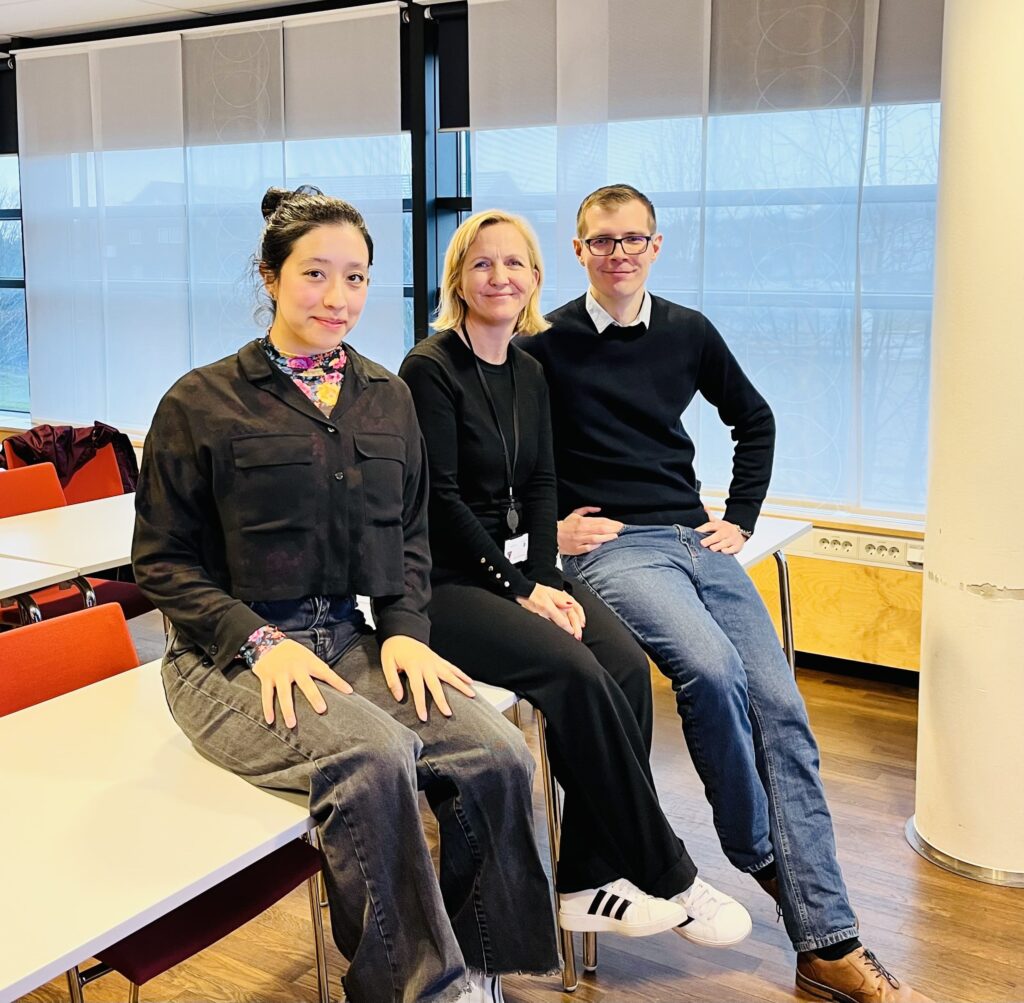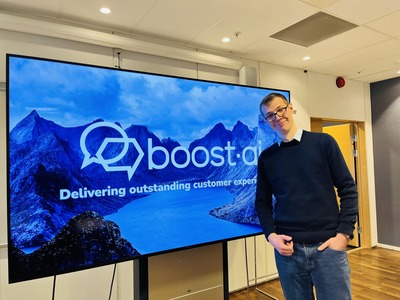Last week, I stood in front of a lively crowd at the “First Friday of the Month 2024” event, hosted by Sammen om en jobb (SAJO). It was my first conference, and let me tell you— my stress was palpable.

We dove into the topic of “The Future of Work with AI” and I was thrilled to see how engaged everyone was. After my presentation, the flood of questions that followed in private talks gave me the idea of writing this new article.

One question, in particular, kept popping up: “Will AI replace me, you think?”
It’s a big question—and a valid one—especially for those of us in marketing.
How AI is helping us today?
It’s mainly about making us faster, sharper, and yes, sometimes even a little smarter.
First off, AI has taken over the repetitive stuff.
I’m talking about the tasks that, frankly, no one ever dreamed of adding to their LinkedIn profile (sorting through massive datasets, scheduling posts for the fifth time this week, or digging through analytics to figure out what worked and what didn’t). AI tools like HubSpot, Hootsuite, and Tableau are making these things seamless, leaving us with more time to focus on strategy and creativity.
Then there’s personalization.
If you’ve ever been amazed (or slightly creeped out) by an ad that seemed to read your mind, you can thank AI for that. Tools like Dynamic Yield or Adobe’s Sensei are helping marketers deliver content and products tailored to the exact person scrolling. No more one-size-fits-all campaigns; we’re talking about campaigns that feel like they were written just for you—because they kind of are.
And let’s not forget content creation.
AI can’t quite replace Shakespeare yet (and let’s hope it never does), but tools like Chat GPT are lending a hand in brainstorming headlines, drafting blog outlines, or even creating ads. It’s like having a creative sidekick who’s always ready to pitch an idea, even if it’s 3 a.m.
How are companies behaving?
The reality is nuanced: while some CEOs have made the controversial decision to replace employees with AI, most are choosing a different path.Take Summit Shah, the founder and CEO of Dukaan, a Bangalore-based e-commerce company, as an example. In 2023, he replaced 90% of his support staff with an AI chatbot, citing efficiency and cost-saving benefits.

Moves like this make headlines—and understandably spark concerns about job security. But they’re not the norm.
Most companies see AI not as a replacement for human workers but as a tool to enhance productivity. The 2024 study from Indeed describes AI as “a very advanced digital assistant” that’s meant to make us more productive. The majority of organizations are using AI to empower their teams, not shrink them.
For example, AI can help a small marketing team manage large-scale campaigns without breaking a sweat. It’s like giving your team superpowers—they can handle more, respond faster, and deliver results that would have seemed impossible a few years ago.
But there’s a flip side to this. When companies see how much more employees can achieve with AI, they might start raising their expectations. “If you can handle this much now, why not a bit more?” becomes the unspoken question.
This isn’t new. Every time technology has made us more efficient, companies have adapted by raising the bar. It’s not about replacing people; it’s about reshaping the workplace around what’s possible. So, while AI might not be coming for your job, it is changing the job itself—and that’s something we all need to prepare for.
A long-term outlook
What happens if AI keeps getting smarter—and there are no regulations to restrict its impact on jobs? Will marketing roles disappear completely, or will new opportunities emerge to replace them? History offers some clues because every game-changing technology has disrupted the job market:
- The wheel made some forms of manual labor obsolete.
- The printing press revolutionized how we share information, putting scribes out of work while creating jobs for printers, publishers, and writers.
- Electricity reshaped industries
- Internet laid waste to some professions while spawning entirely new ones:
| Destroyed Jobs | Created Jobs |
| Travel agents Print journalists Retail cashier Bookstore staff Video store clerks | Software & Web development E-commerce and online business Digital marketing Online education Freelancing economy |
For every job the internet eliminated, it opened doors to five more. The same could very well happen with AI.
In marketing, AI might take over repetitive or highly predictable tasks. But it could also lead to roles we haven’t even imagined yet—like AI ethicists to oversee how we use these tools or “machine whisperers” to train AI models in creative fields. It’s not a question of whether jobs will change—they always do. It’s a question of whether we’re ready to adapt.
The key is balance. We need to embrace the opportunities AI brings while staying vigilant about its potential downsides. That includes advocating for policies that support workers during transitions and investing in education to prepare the workforce for jobs that don’t exist yet.
So, will AI replace all marketing jobs?
Unlikely. It might disrupt them, reshape them, and even create some chaos along the way. But if history is any guide, we’ll come out the other side with new roles, new skills, and maybe even a few surprises we can’t predict yet.

Even if my job is getting replaced in the future, I don’t see AI as a villain in the story of work—it’s a plot twist. It will challenge us, change how we work, and yes, maybe unsettle us at times. But if we stay curious, keep learning, and adapt with the times, there’s every reason to believe the future will hold more opportunities than we can imagine today.

Comments